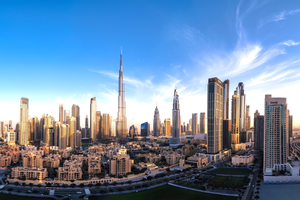During the pandemic, consumers became more digital, eco-friendly, price-oriented, healthy, and local. Those changes are here to stay, signalling a historic and dramatic shift in consumer behaviour.
According to PwC’s June 2021 Global Consumer Insights Pulse Survey, the economic and social consequences of COVID-19 will have an everlasting impact on the market landscape.
More digital
There has been a noticeable shift to digital across the Middle East as 47% of Middle East consumers reported to have frequently used their smartphones for purchases. Also, as a result of COVID-19, the number of people going online for groceries increased significantly. As a result, more retailers, from luxury sites to grocery stores, adapted this business model and started offering flexible and same-day delivery services.
More price-sensitive
57% of Middle East consumers have been more price-oriented during the pandemic. Despite widespread vaccination programs, shoppers remain more price-conscious than before the pandemic – 66% said they have been focused on saving. Consumers are also more likely to spend their money differently than before the pandemic as 53% of surveyed consumers are willing to spend more on groceries.
More health-conscious
71% of Middle East consumers have become more healthy during the pandemic. This rising health consciousness is reflected particularly in Saudi Arabia where 79% of consumers said they have become more healthy. When shopping for groceries, 41% of respondents say that they are willing to pay more for healthier options. In response, food retailers in the region are increasing their range of healthy or diet products.
More eco-friendly and socially aware
The pandemic reinforced the awareness of consumers about social and environmental sustainability. 65% of respondents said that they became more eco-friendly during the pandemic. It is important to mention that consumers who are not prioritizing sustainability, believe there is a lack of sustainable options (39%), that the quality of those products is inconsistent (36%), or that they are expensive (35%). With social and environmental sustainability on the rise, retailers should rethink their product offerings, to remain relevant.
As the pandemic subsides, retailers across the region will need to be fast and agile to capture business opportunities from a rising generation of digital natives who are price-sensitive, health-conscious, and socially aware consumers.
In response to this evolving consumer landscape, POY Gulf introduced a range of POY labels to help marketers highlight their sustainable practices, digital transformation efforts, competitive value, and health-oriented offerings.
News Source: Communicate









